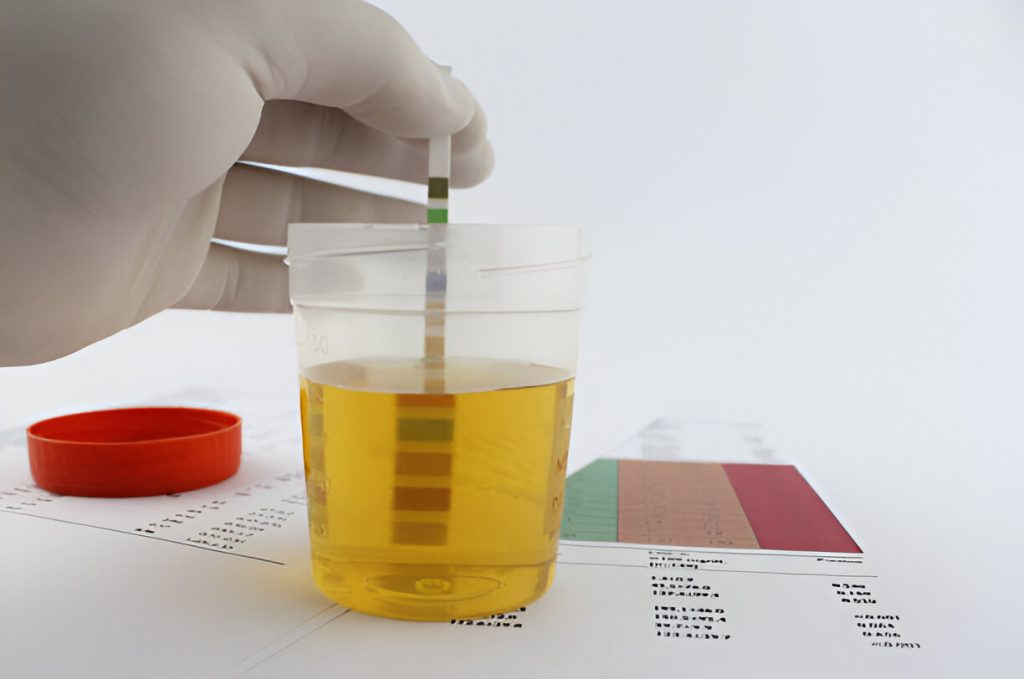Urine drug screen test are a common method used to detect the presence of drugs in a person’s system. These tests are often used in many settings. These include employment screenings, legal cases, and medical evaluations. Knowing how far back a urine drug screen can detect substance use is vital. It matters for those being tested and those doing the testing. This article will explore the detection windows for different substances. It will cover factors that affect these windows. It will also include tips for getting accurate results.
Understanding Urine Drug Screen Test
The test analyzes a urine sample. It finds specific drugs or their byproducts. Metabolites are substances produced when the body breaks down drugs. The tests are non-invasive. They are quick and fairly easy to do. This makes them a popular choice for drug testing. They are also cost-effective. Many industries, from healthcare to transportation, widely accept them.
Visit: ULTRA CARE MEDICAL CENTER
Detection Windows for Common Substances
The detection window of a urine drug screen test varies depending on the substance. Here are the typical detection times for some common drugs:
1. Marijuana (THC)
- Occasional Use: 1-3 days
- Regular Use: Up to 10 days
- Heavy Use: Up to 30 days or more
Marijuana contains THC. It is known for its long detection window, especially in regular and heavy users. This is due to its fat-soluble nature, which means it is stored in the body’s fat cells and released slowly over time.
2. Cocaine
- Occasional Use: 2-4 days
- Heavy Use: Up to 10 days
Cocaine, a stimulant, has a shorter detection window compared to marijuana. However, frequent and heavy use can extend this window significantly. Its water-soluble nature allows the body to eliminate it more quickly than fat-soluble drugs.
3. Opiates (Heroin, Morphine, Codeine)
- Occasional Use: 1-3 days
- Heavy Use: Up to 4 days
Opiates are often prescribed for pain relief but are also commonly abused. The detection window for these substances is relatively short, but regular use can make them detectable for a longer period.
4. Amphetamines (Methamphetamine, Ecstasy)
- Occasional Use: 1-3 days
- Heavy Use: Up to 4 days
Amphetamines, such as methamphetamine and ecstasy, are stimulants. They have a similar detection window to opiates. They are processed and eliminated quickly by the body, but this can vary based on the frequency and amount of use.
5. Benzodiazepines
- Short-acting: 1-2 days
- Long-acting: Up to 10 days
Benzodiazepines are used for anxiety and sleep disorders. Short-acting benzodiazepines leave the body quickly. But, long-acting ones can be detected for much longer.
Factors Affecting Detection Windows
Several factors can influence how long a drug remains detectable in urine. These include:
1. Frequency of Use
Occasional users have shorter detection windows than regular or heavy users. The body clears the substance more quickly in occasional users.
2. Metabolism
Individuals with a faster metabolism will eliminate drugs from their system more quickly. Metabolism rates can vary due to factors like age, gender, and overall health.
3. Body Fat
Drugs like THC are stored in fat cells. They may retain these drugs longer. This extends the detection window.
4. Hydration Levels
Staying well-hydrated can help flush drugs from the system more quickly. However, drinking too much water before a test can dilute the urine. This can lead to inconclusive results.
5. Type of Drug
Different drugs have different chemicals. This affects how long they stay in the body. For example, THC is in marijuana and dissolves in fat. Cocaine dissolves in water. This affects how long they can be detected.
6. Age and Overall Health
Older individuals and those with poor health may process drugs slowly. They may also eliminate them slowly. Chronic health conditions can also affect how long substances remain detectable.
Tips for Accurate Test Results
To ensure accurate urine drug screen results, consider the following tips:
1. Follow Pre-Test Instructions
If you are taking a urine drug screen, follow any pre-test instructions from the testing facility. This may include avoiding some foods, drugs, or supplements. They could affect the results.
2. Provide a Clean Sample
Ensure the sample is free from contamination. Use the sterile container provided by the testing facility and avoid touching the inside of the container or the lid.
3. Avoid Dilution
While staying hydrated is important, avoid excessive water consumption before the test. This can dilute the urine, making it difficult to detect the presence of drugs accurately.
4. Be Honest
If you are taking prescription medications or over-the-counter drugs, inform the testing facility. Some drugs can cause false positives. Providing this info can help ensure accurate results.
5. Understand the Test Limitations
No test is foolproof. False positives and false negatives can occur. Understanding the limits of urine drug screens can help interpret the results.
6. Consider Timing
Schedule your test at a time when you are less likely to have residual substances in your system. Understanding the detection windows can help you plan accordingly.
Conclusion
Urine drug screen tests are a valuable tool for detecting drug use in various contexts. The window for these tests depends on many factors. These include drug type, use frequency, metabolism, body fat, hydration, age, and health. Understanding these variables can help individuals and administrators interpret test results more accurately. Follow the pre-test instructions. Use a clean, undiluted sample. This will ensure the most reliable results from your urine drug screen test.
Contact us today!
Call to Action: Trust Deptford Medical Center for Reliable Testing
At Deptford Medical Center, we know the value of precise and dependable urine drug tests. Our experienced professionals are committed to giving you precise results. They also offer excellent service. Whether you need a test for employment, legal purposes, or personal reasons, we are here to help. Contact Deptford Medical Center today to schedule your urine drug screen test. You will experience our top care and expertise.
Frequently Asked Questions
How accurate are urine drug screen tests?
Urine drug screen tests are highly accurate when conducted correctly. They can detect recent drug use but may produce false positives or negatives. Confirmatory tests, like GC-MS, ensure precise results.
Can prescription medications affect test results?
Yes, certain prescription medications can cause false positives. You must tell the testing facility about any medications you are taking. This is to ensure the results are accurate.
How soon can drugs be detected after use?
Most drugs can be detected in urine within a few hours of use. The timing depends on the substance. It varies with the amount used and individual factors like metabolism and hydration.
Can hydration levels affect test results?
Yes, staying well-hydrated can help flush drugs from your system faster. However, drinking too much water before a test can dilute the urine. This can lead to inconclusive results.
Do urine drug screen tests detect alcohol?
Standard urine drug screen tests do not typically test for alcohol. Specific tests can detect alcohol use. But, they are usually separate from standard drug panels.
How long do drugs stay in your system?
The detection window varies by drug. For example, marijuana can be detected for up to 30 days in heavy users, while cocaine and opiates are typically detectable for up to 4 days.
Can you fail a urine drug test from second-hand smoke?
Second-hand exposure to drugs like marijuana is unlikely. It won’t make a urine drug test positive. The levels of drugs absorbed through second-hand smoke are usually too low to be detected.
What happens if you test positive?
If you test positive, a confirmatory test is usually performed to verify the results. Employers or legal authorities will review the findings. They may discuss the results with you. They will do this to decide the next steps.

